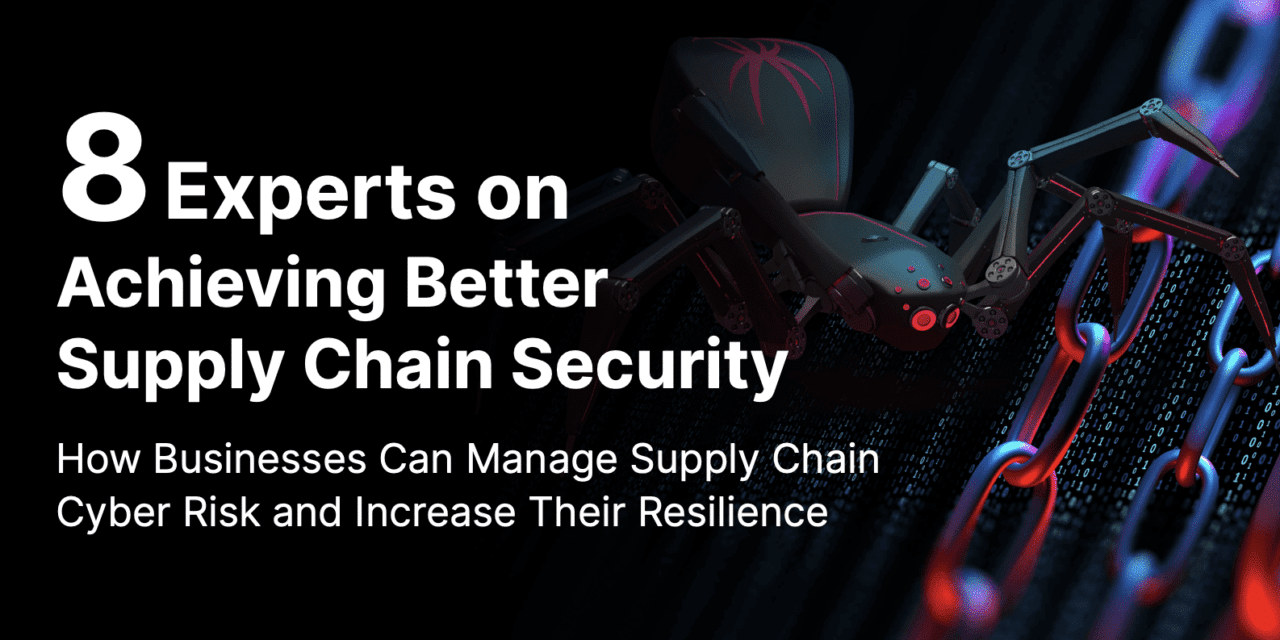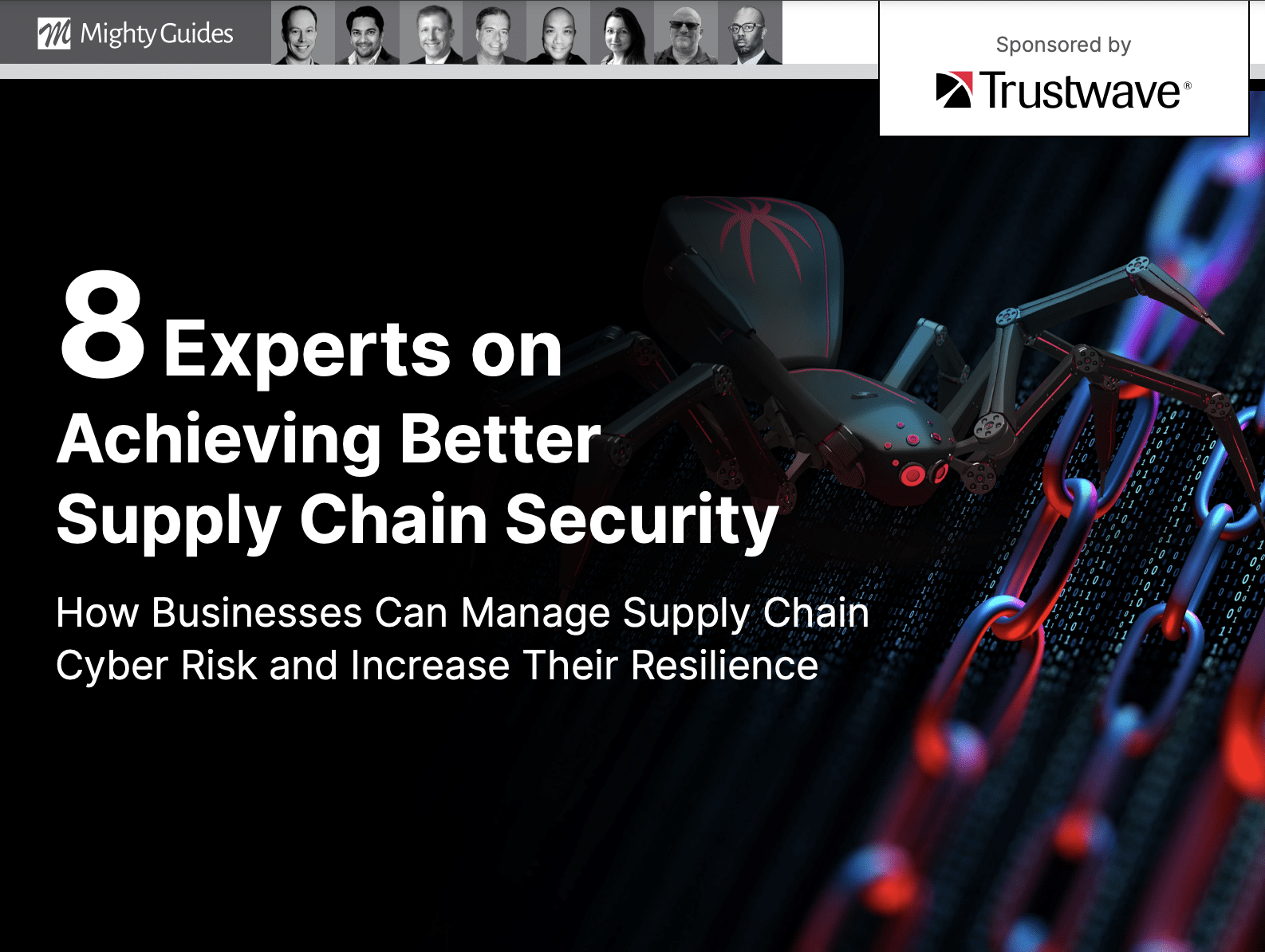The book includes insights from the following experts:
- Terry Wasti, Director – Infor FSM Supply Chain, Grant Thornton LLP
- Tyrone Watson-Ferguson, SVP/CISO, Security Bank of Kansas City
- Matthew Otwell, CISO, Maryland Department of Health
- Steven Parker, CISO, TBC Corporation
-
Olga Voytenko, Managing Director, Global Head of Third Party and Outsourcing Risk Management, State Street
-
Kevin Tham, CISO, Avenue Bank
-
Ali Ansari, Managing Director – Supply Chain and Payables Finance, Taulia
-
Nick Ellsmore, SVP, Worldwide Consulting and Professional Services, Trustwave
8 Experts on Achieving Better Supply Chain Security was generously sponsored by Trustwave.
Supply chain cyber risk is an increasingly pressing issue for organizations across the globe. According to a recent survey by the analyst firm Gartner, 89 percent of companies experienced a supplier risk event in the past five years. In the wake of the 2021 SolarWinds and Apache Log4j cyber incidents, organizations have become increasingly aware of the risks associated with their supply chains. Worldwide supply chain disruptions associated with the COVID-19 pandemic have highlighted the importance of supply chain risk management even further. Despite these warning signs, Gartner reported that companies’ awareness of supply chain risk and plans to mitigate this risk are not yet mature. Most organizations have a large volume of suppliers, yet they’re not always aware of who these suppliers are or what data or systems they have access to. Without visibility into their supply chains, companies cannot properly assess, let alone manage, their associated risks. And because many organizations still use legacy supply chain risk management approaches, they are unable to scale them to handle the increased volume of supply chain relationships. This guide explores the state of the modern supply chain and highlights the key elements of supply chain cyber risk affecting organizations today. It also identifies the top five supply chain resilience challenges, provides four best practices for achieving better supply chain resilience, and explains how a trusted partner can help organizations become more resilient in less time.




